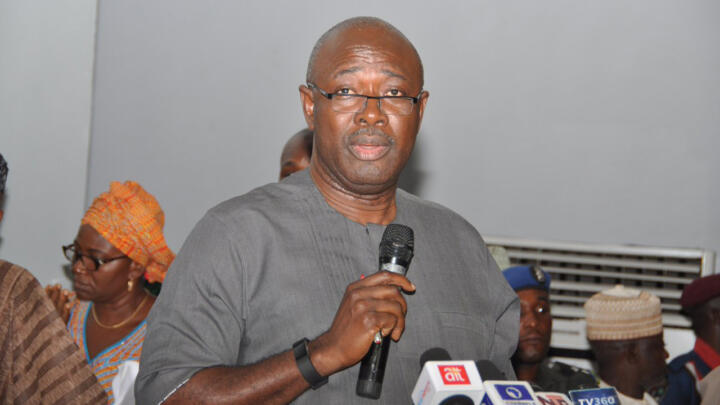The commitment of Nigeria to the Organization of the Petroleum Exporting Countries (OPEC) remains steadfast, as reiterated by the Minister of State for Petroleum, Heineken Lokpobiri. This affirmation comes in the wake of Angola, the second-largest oil producer in Africa, deciding to exit the cartel. In a statement issued on Thursday, Lokpobiri emphasized that Nigeria will maintain its engagement with OPEC to address the country’s concerns and contribute to the stability and sustainability of the oil market.
Lokpobiri stated, “Our collaboration within the organization remains pivotal in fostering stability and sustainability in the oil market. We are resolute in our dedication to OPEC’s objectives while actively engaging with the organization to address concerns that resonate not only within our nation’s borders but across the entire continent.”
Despite being assigned a production target of 1.5 million barrels per day (bpd) for 2024 by OPEC, Nigeria has expressed its intention to surpass this goal by producing at least 1.8 million bpd. This ambition reflects Nigeria’s strategic approach to enhance its oil production and revenue from the sector.

The decision of Angola to exit OPEC earlier in the week raised eyebrows within the international oil community. Angola’s Energy Minister justified the move, stating, “We feel that … Angola currently gains nothing by remaining in the organization and, in defense of its interests, decided to leave.” The reduction of Angola’s production quota for 2024 by approximately 350,000 barrels daily, from 1.46 million bpd to 1.1 million bpd, was a significant factor contributing to its departure. The nation had been granted a five-month extension to demonstrate increased production capacity, but it fell short of meeting the expectations set by external consultancies and analysts from S&P Global.
Angola’s oil sector has faced challenges, including low investment leading to diminished production levels. The exit from OPEC reflects the nation’s attempt to safeguard its interests in a challenging global oil market. It remains to be seen how this decision will impact Angola’s oil industry and its broader economic landscape.
OPEC, in its 2024 production quota allocations, reduced Nigeria’s quota to 1.5 million bpd, down from 1.78 million bpd in 2023. In response, Nigeria has advocated for a daily production quota of 1.8 million barrels, emphasizing its commitment to boosting production and maximizing revenue from its oil sector.
The dynamics within OPEC underscore the challenges faced by member countries in aligning their individual interests with the collective goals of the organization. Nigeria’s proactive stance in seeking a higher production quota reflects its determination to optimize its oil resources for economic growth and development.
As the global oil landscape continues to evolve, with geopolitical factors, market dynamics, and environmental considerations influencing decisions, the engagements within OPEC take on added significance. Nigeria’s active participation and negotiation within the organization demonstrate its commitment to navigating these complexities while safeguarding its national interests.
In conclusion, Nigeria remains firmly committed to its membership in OPEC, aiming to actively contribute to the stability of the oil market and address its concerns within the organization. The decision of Angola to exit OPEC underscores the ongoing challenges faced by oil-producing nations in balancing individual interests with collective objectives. The coming months will provide insights into how these developments shape the future trajectory of OPEC and the broader global oil industry. Infostride News will continue to monitor and report on these critical developments as they unfold.
Support InfoStride News' Credible Journalism: Only credible journalism can guarantee a fair, accountable and transparent society, including democracy and government. It involves a lot of efforts and money. We need your support. Click here to Donate
